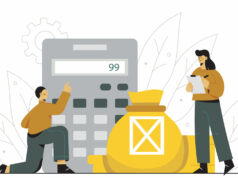By Tony Samson
WHAT BANKS, management consultants, financial advisers, digital platforms, or ad agencies bidding for an account call a “pitch,” their prospective clients privately refer to internally as a “beauty contest.”
Suppliers do quarter turns to show their best side.
The hopeful bidder trots out credentials and awards it has won, what it has done for other clients in the guise of “case studies” (with a semblance of confidentiality maintained) and what it intends to do for its new prospect. Emphasis of the presentation is in the latter and the attempt to show an understanding of the business and the problems facing it, which are usually life-threatening.
Bidders and beauty contestants are very different.
Beauty contestants would never set out to deflate the egos of the jury. But this is what the bidders do right away. In the guise of research from focus groups selected for their animosity to the target company, the bidder weaves findings that can be summarized in one sentence: “your company sucks and needs help.” This is the equivalent of the “before” and “after” ads for beauty treatments: magnify pimples on the corporate face, the better to eliminate them with the expensive remedies presented. (You won’t even feel the pain of peeling skin.)
Seeming to diagnose a lingering illness, the bidder offers a cure if only the patient can accept the “transformation” and pay for it. The worst-case scenario makes any bitter medicine easier to prescribe.
But can the dire diagnosis turn off the patient? There is a possibility of that. Clue: The panel is already jotting down rating scores on the bidder after the situation analysis. (Who let these morons in?)
Presenters can read faces. Just because the “big idea” is flopping around and overturning furniture like a crazed elephant doesn’t mean it is possible to change gears and retreat through the narrow door. The visuals relentlessly lead to the dire conclusion. The hole is dug deeper and deeper. The scenery gets darker and muddier — management will be replaced by artificial intelligence.
Beauty contestants move through their paces with metronomic precision, not allowing dawdling and time wasting. Not so for bidders. While they are given a time limit of 30 minutes for presentations, they go slide after slide presuming the same enthusiasm from their audience as they devoted on the visuals. (I’m getting to the last slide.) Presenters worked on these slides for a week without sleeping. Let the smirking panel be inflicted the pain of too much information.
Bidders do not trot out on stage simultaneously as beauty contestants do to facilitate comparison and rating. Corporate contestants go in one after the other as similarities of the slides (and even the jokes) are inflicted on an increasingly tired panel. (What, three more to go?)
Because of the serial presentation, comparisons can only be made at the end when the first entries fade in a hazy soup. Rating is often done against some personal abstract standard — they look sleepy.
Careful planning ensures success. The evaluation panel is studied to find out which of the supposedly equal votes has more weight. The person asking the most questions (Is that the correct spelling of “singularity”?) is not the most important. The number of questions asked and the loudness of their delivery are inversely proportional to the decision-making weight in determining the winner. Thus, the quiet one asking not a single question needs to be watched — is he jotting down notes?
Body language is important. Here are some distress signals: Shifting in the seats, constant checking of the watch, checking the phone for stock prices, continuous texting of the man in the middle seat (the one facing the screen), and loud conversations going on among committee members while the hot stuff is being trotted out (Overheard: Do you really think we have a chance for a three-peat?) and long disappearances from the room.
It is a rule that the losers get the verdict earliest. Warm words don’t count — I liked your effort and the talents clearly on display in the pitch. The slides show an aesthetic taste for impressionism.
Is there a “but” coming down the pike? You don’t have to hold your breath to find out. Sometimes, there are no winners — we are re-evaluating the need for transformation. Maybe a different set of contestants will be called in… after a year.
Tony Samson is Chairman and CEO, TOUCH xda.



